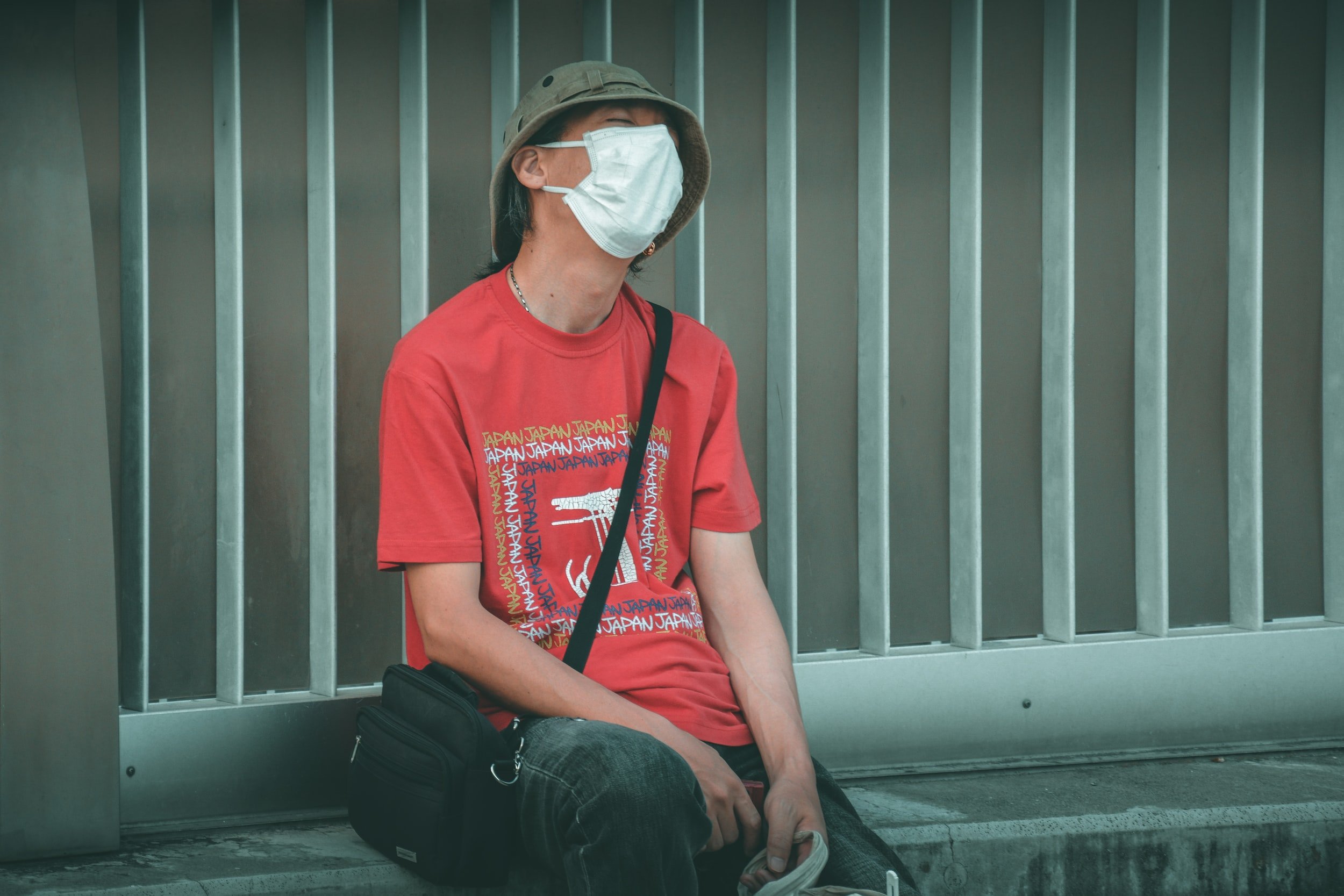Studying Risky Behaviors or Settings
In March 2022 the SAGE Methodspace focus is on researching sensitive or controversial problems. In addition to concerns for participants, researchers can also face danger when studying risky or illegal behaviors. This multidisciplinary collection of open-access articles offers examples you can review when planning to study edgy topics.
Dow, B. S., & Boylan, B. M. (2020). Learning From Vulnerable Populations: Methodological Implications of Interviewing Individuals With Fetal Alcohol Spectrum Disorder. International Journal of Qualitative Methods. https://doi.org/10.1177/1609406920931254
Scholars face methodological challenges when conducting research about vulnerable populations, such as individuals living with fetal alcohol spectrum disorder (FASD). They often struggle to identify, sample, and interview individuals in order to learn about their life experiences and perspectives. Although some scholarship provides methodological guidance on researching vulnerable populations, scant literature addresses accessing and collecting perceptions from individuals with FASD. Based on work with adults with FASD, we offer procedures for sampling and interviewing. Our suggestions include working with agencies and gatekeepers involved with the population; ensuring voluntary and informed consent throughout the interview process; establishing rapport with interviewees and providing a comfortable interview environment for them; and adjusting interview questions according to individuals’ cognitive abilities. By following these procedures, researchers can learn from these individuals while reducing the risk of harm to them.
Ferris, S., Lebovitch, A., & Allard, D. (2021). Sex Work Research, Ethics Review Processes, and Institutional Challenges for “Sensitive” Collaborative Research. International Journal of Qualitative Methods. https://doi.org/10.1177/16094069211033437
This article examines challenges and barriers seemingly endemic to the research ethics review process. We argue that these challenges and barriers disempower community stakeholders in sex work research and that they put our studies and those who consent to participate in them at risk. To advance this position, we interrogate three of our own encounters with research ethics boards (REBs) in the context of current scholarship on meaningful collaborative research and REB roles and responsibilities in relation to sex work and other sensitive research. As these encounters illustrate, there is an urgent need for established REB processes to be opened up to allow for and respect non-academic expertise. We suggest that such policy and process revisions are particularly important given the growing requirement for meaningful stakeholder involvement in all aspects of studies that engage marginalized groups. In this new anti-oppressive collaborative framework, stakeholder community expertise thus informs study development and design, as well as the collection and analysis of data, and decisions regarding where and how study findings are to be shared. Research ethics review processes must be revised accordingly to acknowledge and give due consideration to community-based expertise. We conclude by proposing institutional and community-based strategies for resisting and revising current research ethics review structures and processes. Applying the lens of whore stigma to select REB encounters, this article contributes to existing research about ethical and anti-oppressive sex work research methods and methodologies, arguing that we must account for REB encounters in the growing body of theory that seeks to understand and articulate how best to conduct sex work research in partnership with sex workers.
Jozaghi, E., Buxton, J. A., Thomson, E., Marsh, S., Gregg, D., & Bouchard, M. (2018). Building New Approaches to Risk Reduction With Social Networks and People Who Smoke Illegal Drugs From Participatory Community-Based Research. International Journal of Qualitative Methods. https://doi.org/10.1177/1609406918771247
Many traditional qualitative and quantitative methods have not effectively engaged people who use drugs as researchers or collaborators due to stigma related to illegal drug use. The aim of this study is to recognize that everyone within the network of PWSID is a few steps away from harm. Therefore, we aim to reduce the harm associated with smoking of illegal drugs, especially for PWSID that are at the highest risk. At the same time, we hope that the social network research via a participatory community-based approach will mobilize PWSID in the process and offer a different method of knowledge construction from the traditional positivist approaches.
Hong, Y., Mitchell, S. G., Peterson, J. A., Latkin, C. A., Tobin, K., & Gann, D. (2005). Ethnographic Process Evaluation: Piloting an HIV Prevention Intervention Program among Injection Drug Users. International Journal of Qualitative Methods, 1–12. https://doi.org/10.1177/160940690500400101
This study demonstrates an ethnographically critically informed process evaluation of piloting an HIV intervention program targeting injection drug users. The authors used systematic ethnographic methods to identify and evaluate the factors that facilitated or inhibited message diffusion. Findings indicated that communication patterns and strategies advocated in training sessions did not translate immediately into the outreach encounter in the drug use communities. The intervention program was refined and developed based on findings from the ethnographic process evaluation. The authors argue that ethnographic methods provided a dynamic, flexible, and iterative process for evaluating the intervention's development and ensuring its cultural relevance.
Love, B., Vetere, A., & Davis, P. (2019). Handling “Hot Potatoes”: Ethical, Legal, Safeguarding, and Political Quandaries of Researching Drug-Using Offenders. International Journal of Qualitative Methods. https://doi.org/10.1177/1609406919859713
Conducting qualitative field research involving drug users within a politicized criminal justice setting presents a unique set of ethical, legal, and safeguarding concerns and quandaries for researchers. There is a paucity of qualitative research with community-based drug-using offenders who form part of the UK Government (England and Wales) criminal justice strategies (Senker and Green; Hucklesby and Wincup). Hodgson, Parker, and Seddon highlighted this group as an emerging study population. This article aims to provide a more recent contribution covering the difficulties of accessing and researching with a hard to reach and politicized criminal justice drug-using population, such as risks of re-traumatization, risk assessment, safeguarding, criminal disclosure, and personal safety. The first author reflects on her research from her own unique political position as a policy advisor to the UK Government on criminal justice drug policy, with a view to providing recommendations for research with a hard to reach and hidden population who represent a marginalized group. The combination of reflexivity in research and the use of Interpretative Phenomenological Analysis as a research methodology proved helpful in addressing and overcoming some of these ethical, political, and other quandaries.
Mitchell, W., & Irvine, A. (2008). I’m Okay, You’re Okay?: Reflections on the Well-Being and Ethical Requirements of Researchers and Research Participants in Conducting Qualitative Fieldwork Interviews. International Journal of Qualitative Methods, 31–44. https://doi.org/10.1177/160940690800700403
In this paper the authors present their reflections on a U.K. government–funded study exploring mental health and employment. Conducting research on a sensitive theme with a potentially vulnerable group gave renewed focus to some social research issues, including consent and control, rapport building, managing and responding to emotion, and offering appropriate longer term support. The researchers discuss their personal approaches and experiences (practical, methodological, ethical) during and after the fieldwork process. In the paper the authors highlight some of the challenges they faced and discuss how these were addressed and managed, sometimes differently, and not always resolved. They demonstrate the need for researchers to be aware of their “research footprint,” in particular the need to be reflexive and responsive to participants' emotional well-being, and for funders and employers to also be sensitive to and mindful of the demands of social research, including impacts on researchers' well-being.
Ruiz-Eugenio, L., Puigvert, L., Ríos, O., & Cisneros, R. M. (2020). Communicative Daily Life Stories: Raising Awareness About the Link Between Desire and Violence. Qualitative Inquiry, 26(8–9), 1003–1009. https://doi.org/10.1177/1077800420938880
Gender violence poses a serious risk for women, girls, and children worldwide. Despite all efforts put forth to curtail it, few successful results have emerged. Narratives have been used to denounce the reality lived by survivors. However, scarcely any literature has explored how they get to question their own reality and, if they do, how these survivors are able to break the circle of gender violence by making room for nonviolent and egalitarian relationships. This article is a step in this direction: It explores how some girls, after participating in an initiative based on the language of desire, known as “Dialogic Feminist Gatherings,” encourage one another to question the dominant model of socialization in relationships in which attraction is linked to violent behaviors. The analysis focuses on communicative daily life stories (hereafter CDLS) performed in a Spanish high school with female teens after their participation in the gatherings. Drawing from these stories, the article illustrates how this methodological tool allows one to assess the impact of these gatherings on identifying the existence of this dominant model while also pushing to question it. This article also contributes to a better understanding of the relationship between attraction and violence, a risk factor for gender violence previously noted in the scientific literature. The knowledge obtained through this inquiry reinforces an evidence-based approach to having an effective social impact on the struggle against gender violence.
More Methodspace posts on researching sensitive issues
















For Pride Month 2023, learn respectful ways to study LGBTQ+ people and related issues.